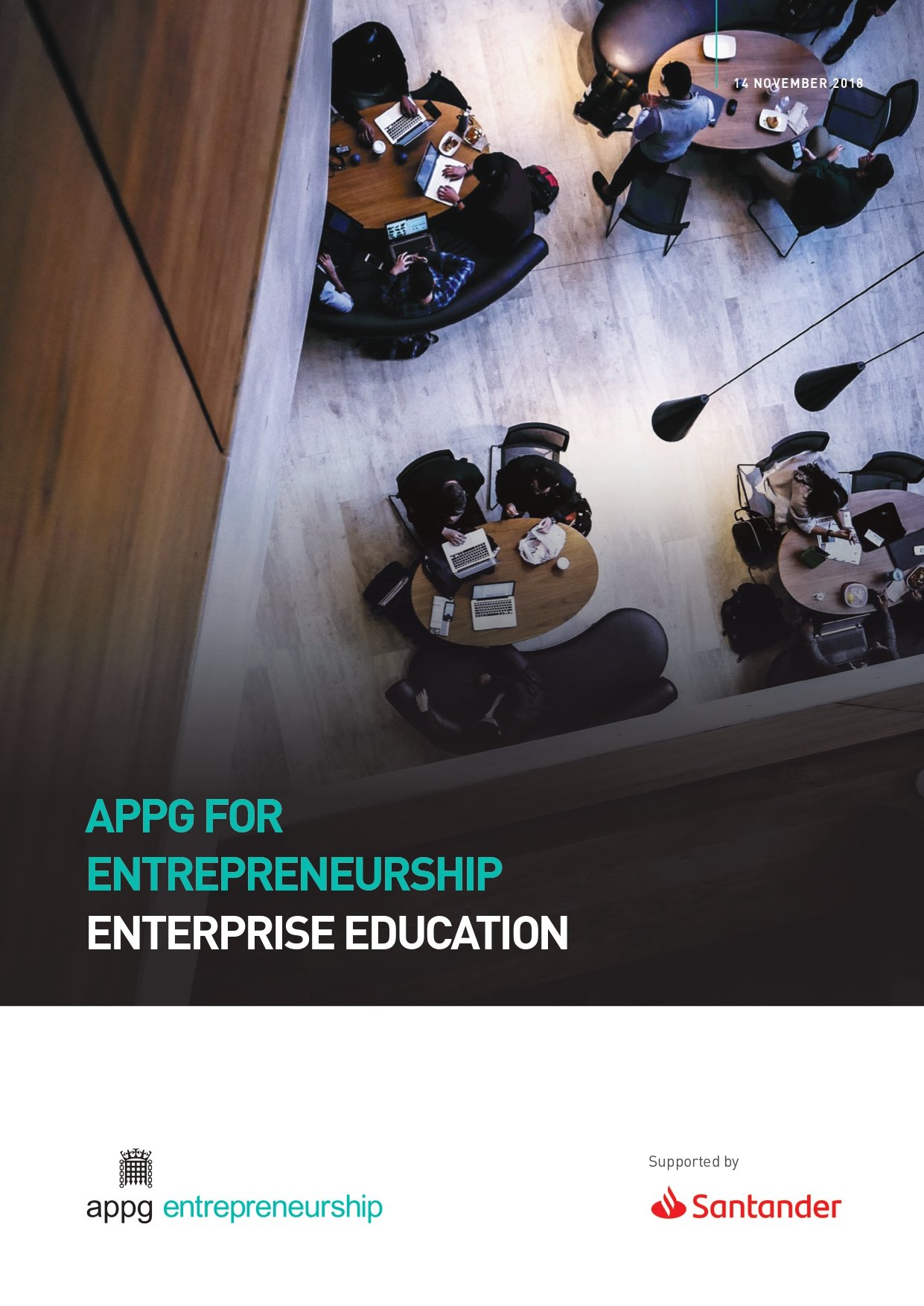Entrepreneurship education is a major research priority for The Entrepreneurs Network. We believe there is a major untapped opportunity to equip young people with the skills to start, run, and grow a business. Over half (51%) of young people in the UK have thought about starting (or already have started) a business, yet 70% believe ‘not knowing where to start’ is a key barrier to following through. Not all young people will start businesses, but the skills taught through entrepreneurship education will help them become more adaptable in a world where tech is disrupting traditional industries and a ‘job for life’ is no longer seen as realistic or desirable.
Research
Empowering the Future
Technological advancements are rapidly transforming the job market, necessitating fresh approaches to prepare the next generation for future opportunities. Enterprise education can sit at the heart of ensuring young people have the skills necessary to flourish.
In Empowering the Future, written in partnership with Youth Business International, Philip Salter highlights some of the key policies – both immediate-impact and longer-term – we think are required to achieve this, including bringing back the Enterprise Allowance Scheme, enabling under-18 year olds to open business bank accounts without credit facilities and funding rigorous trials to allow Enterprise Support Organisations to test out new ways of supporting young entrepreneurs.
What Applied Learning Really Looks Like
Applied learning provides opportunities for young people to use their classroom learning in real-life, practical situations. This not only helps reinforce the learning but also enhances its relevance to young people, who can begin to appreciate how that learning can support future careers and life goals.
In What Applied Learning Really Looks Like, published in partnership with Young Enterprise, Anton Howes highlights several successful case studies to show teachers and policymakers what applied learning actually looks like in practice – particularly in cases where time and resources are limited. The report sets out concrete examples of applied learning in action to inspire teachers and help them articulate their vision to colleagues, managers, and parents, as well as how headteachers and senior leadership teams can support them.
Tomorrow’s Entrepreneurs
Attitudes towards entrepreneurship have shifted. Increasingly, young people see entrepreneurship as a way of changing the world instead of simply a way of making money. In Tomorrow’s Entrepreneurs, we surveyed young founders – finding, among other things, that the more money a business turns over, the more likely they are to agree that their primary aim was to tackle a social or environmental problem.
The report, published in partnership with Youth Business International, concludes with a series of recommendations on how to better support young entrepreneurs, including broader use of Challenge Prizes and Advanced Market Commitments for innovative solutions to big problems, and bringing back the Enterprise Allowance Scheme to help young entrepreneurs start their own businesses.
APPG for Entrepreneurship: Entrepreneurship Education
How can we equip young people with the skills to succeed in a fast-changing world of work? Entrepreneurship Education, a new paper by Finn Conway for the APPG for Entrepreneurship, explains the benefits of teaching young people how to start and grow a business. The report reveals that while young people have a massive desire to work for themselves and employers value enterprise skills, entrepreneurship education in schools is not integrated into the curriculum and England, unlike many other European economies, lacks a specific entrepreneurship education strategy.
The report calls on the Government to develop and publish a Youth Entrepreneurship Strategy for Schools, which would set out key skills it wants young people to develop, and to provide funding to encourage entrepreneurs from more representative backgrounds to visit and engage with schools.
Future Founders: Understanding the Next Generation of Entrepreneurs
In Future Founders, we set out to understand how young people think about entrepreneurship. Through polling of 14-25 year olds, we gained an insight into the aspirations, intentions, and motivations of the next generation of potential entrepreneurs. We found that over half have thought about, or already have, started a business – and only 15% said they had no intention of starting one. We also found that respondents who have a friend or family member who have started a business are more likely to do the same – suggesting that exposure to entrepreneurship is infectious.
The results of our polling allow us to conclude that the ability to solve social problems might be a more persuasive reason to start a business than getting rich quickly, that more needs to be done to promote relatable entrepreneurial role models, and that simply not knowing where to start remains the single biggest barrier to founding a business.
Educating Future Founders
Entrepreneurship education has traditionally taken place at universities, but there is strong evidence that earlier interventions can develop non-cognitive skills that are key to entrepreneurial success, such as creativity, persistence, and communication.
In Educating Future Founders, we recommend that governments invest in randomised control trials to gather evidence on interventions to boost entrepreneurship, and use the results to promote entrepreneurship education at a secondary level.
APPG for Entrepreneurship: Enterprise Education
To thrive in the modern world, Britain’s next generation must be adaptable to change. Up until relatively recently, a job for life was both possible and preferable. It’s increasingly neither. Universities have been central to many of the great intellectual revolutions across history – now they must embrace enterprise education to imbue students with the necessary enterprising skills to flourish in the twenty-first century.
Government has a role to play. Political action – or inaction – has significant repercussions for how enterprise education is delivered. This report aims to inform the government about the successes, challenges and opportunities for delivering enterprise education at universities. Its recommendations are based on responses to a Call for Evidence and aim to work with the grain of the latest thinking and practice.
Contact
To learn more about our work on entrepreneurship education, please contact us by emailing info@tenentrepreneurs.org.








